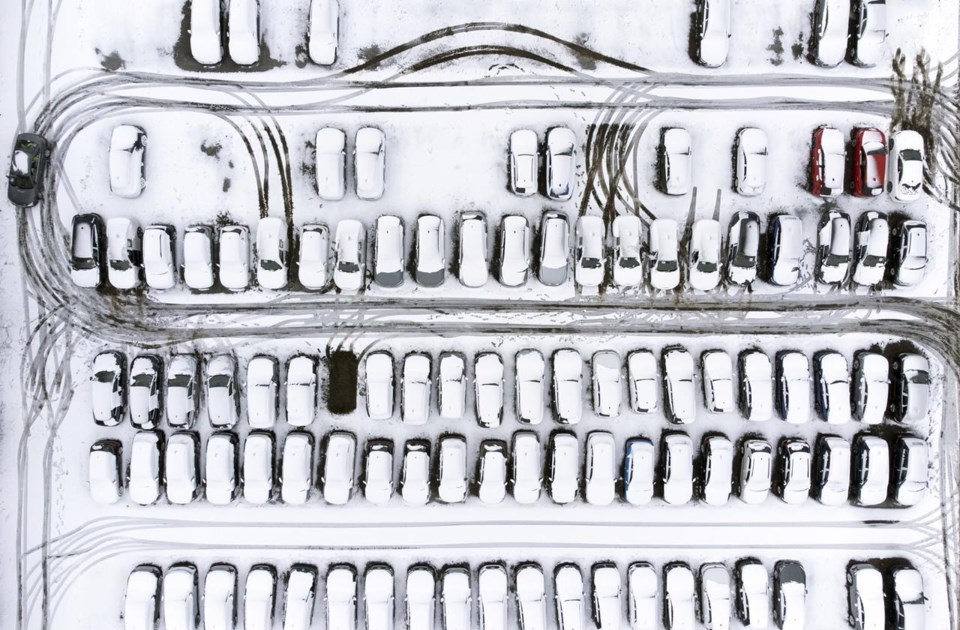LONDON (AP) — Trains were canceled, some schools were shut and drivers were stuck for hours on a major highway as a blast of snow and wind hit Britain on Friday for the second time in a week.
The weather system, named Storm Larisa by meteorologists, brought gales and blizzards to much of the country. Alex Burkill, a meteorologist with the Met Office weather agency, said the worst-hit area was northern England and north Wales, where 50 mph (80 kph) wind gusts were accompanied by up to a foot (30 centimeters) of snow.
Some drivers spent more than seven hours in their cars after traffic ground to a halt on the M62 highway that cuts across northern England.
“I saw lots of abandoned sports cars, one Jaguar left on the road with a shovel stuck in the ground next to it and no driver,” said video journalist Richard McCarthy. “There were lots of lorries losing momentum and getting stuck.”
Many roads on high ground in central England's Peak District were impassable, and the train line linking the cities of Manchester and Sheffield was closed by fallen trees.
Air travel was also disrupted, with most flights departing Liverpool John Lennon Airport delayed on Friday morning. East Midlands Airport in central England was closed for about three hours, while flights were briefly suspended at Birmingham Airport.
Freezing Arctic air has sent temperatures plunging this week to as low as -16 C (3 F) in the Scottish Highlands.
The Met Office said it isn’t unusual for the country to experience a cold snap in the spring, when conditions are often highly variable. Statistically, the U.K. is marginally more likely to get snow in March than it is in December, the office said.
The Associated Press



